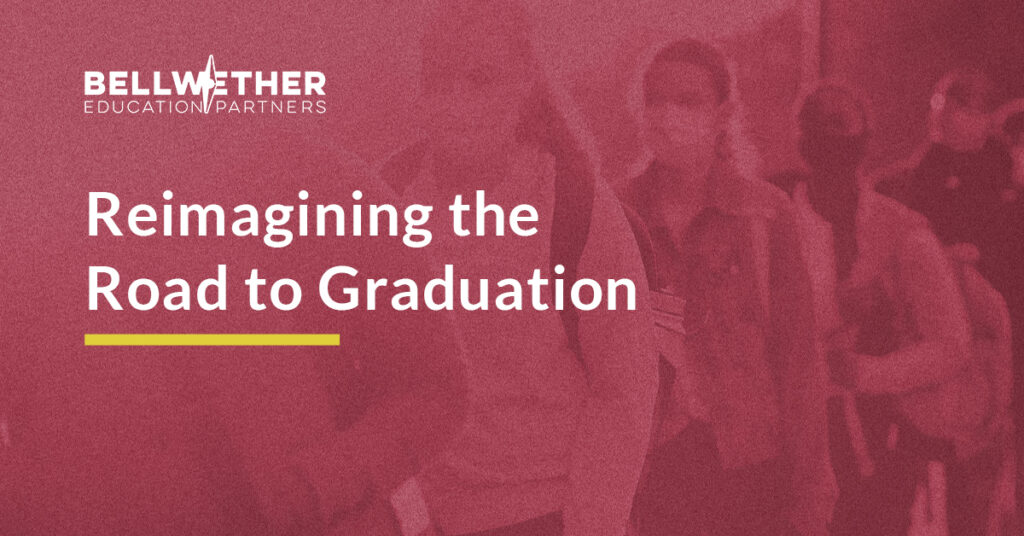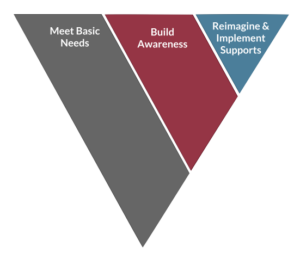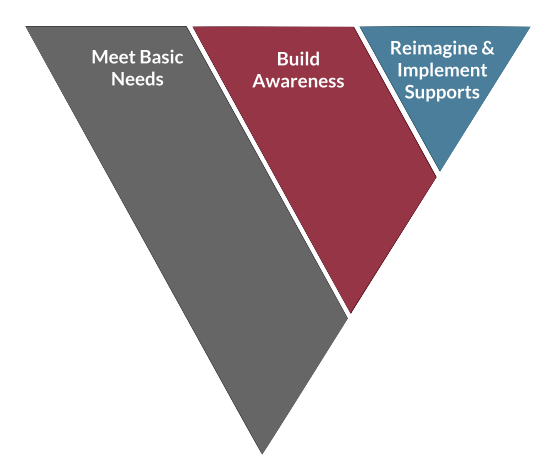
The path to college, prior to the onset of COVID-19, was already a long, hard trek for many first-generation college goers. Add in a global pandemic that upended schooling and lives, and the goal of a college degree feels even further away for many. In Reimagining the Road to Graduation: The Need for Extraordinary Systems to Get Students to and Through College, the Bellwether team offers 34 recommendations to build a better system that will help more young people get to and through college — all in light of the stresses and pressure points that COVID-19 has added to the challenge.
 Three overarching imperatives, taken together, can address the current crisis and build toward a more resilient system in the long term:
Three overarching imperatives, taken together, can address the current crisis and build toward a more resilient system in the long term:
-
- Meet the basic needs of students experiencing disruption: Adults must meet students’ basic financial, physical, and social-emotional needs, all of which are fundamental precursors to engaging in learning. This is a foundational step in supporting students’ postsecondary aims.
- Build awareness of the student experience and systems fragmentation so adults understand the needs of young people and the impact of COVID-19: Education leaders, program providers, and policymakers need a deeper understanding of the magnitude of the impact of COVID-19 on student experience — and awareness that some ripple effects may take years to come to the surface.
- Reimagine and implement supports that can be delivered with coherence and coordination: Support for students must be implemented with renewed purpose and, in some cases, entirely reimagined in response to COVID-19.
The recommendations most likely to make an impact for students in the short term, include:
- Provide and distribute emergency financial assistance to college students
- Prioritize access to physical space (e.g., unused gyms, cafeterias, classrooms, office space) for students who need a quiet place to study and/or access the internet
- Ensure all students, especially those learning virtually, have access to devices and internet connections that facilitate their ability to learn remotely
- Foster peer support models, social activities, and affinity groups for students to build friendships, mentor each other, and provide social-emotional support
- Provide expanded mental health services and proactively reach out to students so the onus is not only on them to initiate a conversation about their overall well-being
- Develop communication plans to reach out to students who paused their schooling due to COVID-19 and design program supports to get them back into school (e.g., texting reminders, counseling on financial aid forms, etc.)
- Adapt college and career advising models to center on the student experience (e.g., including meeting basic needs, social-emotional supports, and family engagement) and integrate more than just college/career planning and navigation
- Train teachers, professors, counselors, and other providers to implement new approaches that center on student relationships and leverage remote technologies
- Extend test-optional admission policies
- Revise and standardize policies (e.g., application cycle deadlines, tuition deadlines, courseload requirements, etc.) to provide additional grace periods for cohorts impacted by COVID-19
- Streamline FAFSA, including standardizing the “award appeal” process
Read all of the recommendations here and visit www.bellwethereducation.org/roadtograduation to learn more.
